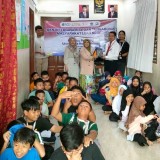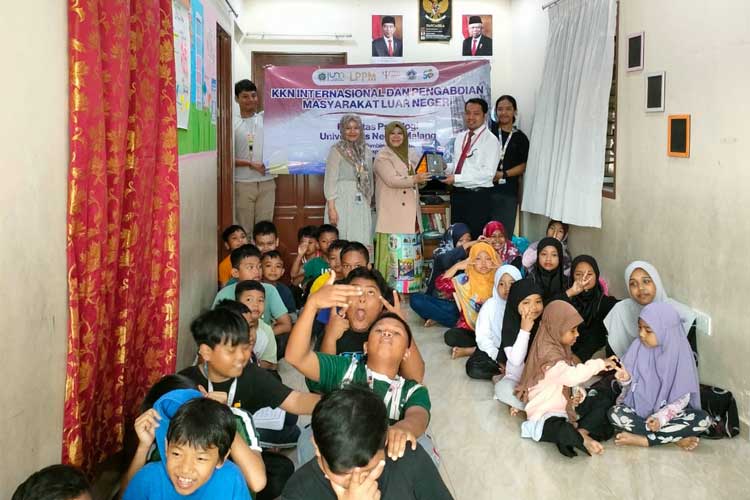TIMES HONGKONG – In recent years, the stereotype that Generation Z (Gen Z) is weak has emerged. Unlike previous generations, they is often criticized for being overly reliant on technology and modern conveniences like online shopping apps and other digital tools.
However, according to Ns. Sri Widowati, S.Kep., M.Kep, a lecturer in Mental Health Nursing and Therapeutic Communication at Muhammadiyah University of Malang, this perception is inaccurate and needs clarification.
“Gen Z is not a weak generation. Instead, they are adapting to the rapid technological changes,” stated Sri Widowati. She explained that technologies that simplify daily activities, such as food delivery services, online shopping apps, and easy access to information, have transformed how Gen Z handles tasks and responsibilities.
Technology Facilitates, Not Weakens
Technology, according to Sri Widowati, known as Bu Wiwied, indeed makes things easier for Gen Z, but it does not mean they are incapable of solving problems. “Gen Z just needs time to adapt, and I believe that eventually, they will manage to fulfill their responsibilities,” she said.
The primary challenge for this generation is fostering self-efficacy—the belief in their ability to overcome challenges.
“Essentially, every individual, regardless of their generation, has the capacity to solve problems. What’s needed is support from family and the surrounding environment. Giving Gen Z opportunities to grow and develop is part of nurturing their self-efficacy,” she added.
Developing Critical Thinking in Gen Z
In facing technological advancements, one crucial skill that Gen Z must cultivate is critical thinking. According to Bu Wiwied, one way to train critical thinking is by providing real-life cases for Gen Z to solve.
“Stimulating them to actively think by offering challenges is an effective approach. For example, involving them in community activities aligned with their passions,” she explained.
With an open education system like the Merdeka Curriculum, Gen Z is given the freedom to explore their interests and talents. “Interest and talent assessments are important for identifying their passions. However, proper steps are still needed to help them keep up and grow in this digital era,” she continued.
Job Challenges and AI: Soft Skills as the Key
With the rise of artificial intelligence (AI) in the workforce, there are concerns about the future of jobs for Gen Z. However, Bu Wiwied emphasized that one thing AI cannot replace is soft skills. “AI may take over some jobs, but soft skills like hard work, resilience, empathy, and discipline are irreplaceable by machines,” she said.
Soft skills, according to Bu Wiwied, are not only taught in schools but are also developed through daily habits. “The role of educational institutions and parents is vital in shaping Gen Z’s soft skills. They need role models who can demonstrate these values in everyday life,” she added.
Balancing Technology and a Healthy Lifestyle
Although technology simplifies many aspects of life, Bu Wiwied reminded that Gen Z must balance convenience with hard work to achieve their goals. “Time management and focus training are key. Mindfulness is essential in this fast-paced era,” she advised.
Sri also emphasized the importance of maintaining a healthy lifestyle, from getting enough sleep and regular exercise to eating a balanced diet. “A healthy diet impacts stamina and focus. Avoiding high-glucose foods and increasing protein intake can be helpful,” she added.
In addition, regular sleep patterns are crucial. “The body’s cells repair themselves at night. So, avoid staying up late without purpose, as it wastes time and hinders cell regeneration,” she explained.
The Role of Family and Environment
According to Bu Wiwied, family support is essential for the growth of Gen Z. “A family that consistently supports and accepts Gen Z as they are will help them feel valued. This is important to prevent miscommunication that could affect their mental health,” she said.
Positive affirmations from parents also play a significant role in shaping Gen Z’s self-efficacy. “Words are prayers. Internalizing positive words will help Gen Z build confidence in their abilities. Additionally, giving Gen Z responsibilities will foster their independence and sense of accountability,” she added.
Bu Wiwied also stressed that appreciation is crucial in boosting Gen Z’s self-efficacy. “Even small gestures of appreciation can provide significant motivation. With recognition, they will become more confident in facing challenges,” she concluded.
The stereotype of Gen Z being a weak generation is inaccurate. Like previous generations, they have great potential to adapt and thrive amidst the changing times. The greatest challenge for Gen Z is not technology itself but how they can hone their soft skills and critical thinking in an era of convenience brought by modern technology.(*)
Artikel ini sebelumnya sudah tayang di TIMES Indonesia dengan judul: Expert Says to Society's Stereotypes of Gen Z as a Weak Generation
| Writer | : |
| Editor | : Khodijah Siti |

























